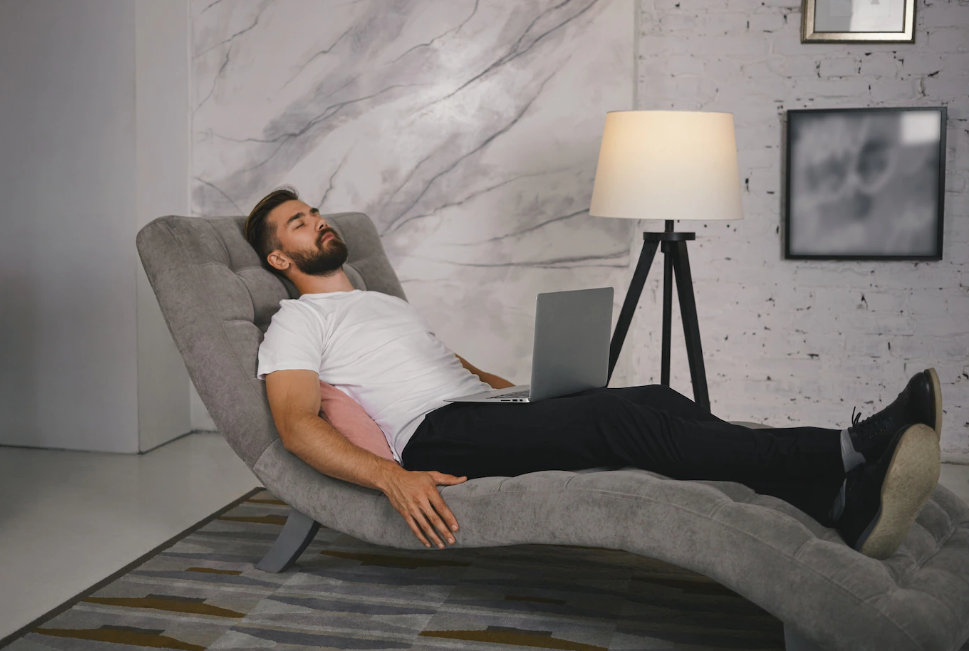Focused Meditation For Sleep and Other Sleep Aids
Learn about focused meditation for sleep and other sleep aids that can help you sleep better.

Selfpause Affirmation App
Download the app to get 1,000’s of affirmation meditations and everything you need to write, record and listen to your own.
Focused meditation is a popular technique for improving sleep. It involves focusing the mind on a particular object, sound, or sensation. This type of meditation is especially helpful for tackling sleep problems, as it creates an overall sense of calm and peace before bed. Some people choose to focus their attention on a candle flame or the sound of a gong. Others prefer to count mala prayer beads.
Focused meditation

Focused meditation for sleep can help you calm down and sleep better. It can also improve your concentration and attention span. This type of meditation uses a repetitive finger motion and a mantra to induce a relaxation response in the body. Researchers have found that consistent practice can produce the greatest results. This type of meditation is best practiced daily.
The main purpose of focused meditation is to increase the ability to focus for longer periods of time. The practice of meditation can also help you learn to tune out the distractions that are bothering you. It can also help you become less bothered by external disturbances, such as the sound of a car alarm. Focused meditation can be beneficial for people with insomnia since it can help them fall asleep faster.
Movement-based meditation

Movement-based meditation has shown promise as a sleep aid, especially in older adults who struggle with insomnia. It increases the amount of time a person spends in a relaxed state and is a great way to reduce overall stress. However, there are certain caveats when practicing this technique. Many types of meditation are too strenuous for people who are physically disabled, and some forms can exacerbate depression and anxiety.
Movement-based meditation can help people fall asleep and stay asleep. There is no need to purchase specialized equipment for this technique. Even if you have a meditation mat, you can practice it anywhere, as long as you find a quiet place where you can sit comfortably and breathe deeply. Once you have a comfortable place to sit, close your eyes and focus on your breathing. This will help you to relax and sleep more deeply.
Mindfulness meditation

You can practice mindfulness meditation before bed to help you sleep better at night. It is best to start off by meditating for three to five minutes before bed, but you can gradually increase this to 15 to 20 minutes. The goal is to focus on the present moment while increasing awareness of the breath, body, and consciousness. As you meditate, you will notice the thoughts that enter your mind and let them pass without judging them. To begin, remove any distractions and lie down in a comfortable position.
Children can benefit from the practice as well, since they face many life challenges, including stress and anxiety. An epidemic of childhood stress has left the youngest generation behind in both academic and social performance. Mindfulness meditation can help children cope with everyday life stresses and develop better attention skills, which can lead to academic success. When practiced regularly, these healthy habits can carry on into adulthood.
Mindful body scanning meditation

If you have trouble sleeping, you might want to try a body-scanning meditation to relax your mind. The process can take as little as five minutes or as long as an hour. The longer you practice, the more you’ll be able to focus on your body sensations and the feelings they bring. Short sessions are also helpful if you don’t have much time.
One of the key benefits of body scan meditation is that it allows you to tune into your feelings and recognize the signs of stress. Stress can have a physical and cognitive effect on your body. Practicing body scan meditations regularly can help you recognize the signs of stress and tension in your body.
Guided meditation
Guided meditation for sleep is a practice that helps people fall asleep by relaxing their minds. It can help you deal with stress, manage emotions, and learn how to relax and sleep more soundly. Many people find guided meditation helpful for getting better sleep at night, but it can also be a helpful tool to use during midday naps or while traveling. There are many different types of guided meditations, and you can find one that works for you.
Some types of guided meditation for sleep involve visual aids, calming music, and nature sounds. It can be beneficial to find a style that you enjoy and feel relaxed about while meditating.
Our Top FAQ's
Focused meditation involves focusing the mind on a specific object, thought, or activity in order to achieve a state of heightened awareness and relaxation. It is believed to improve sleep by reducing stress and anxiety, which are common causes of sleep problems. Research suggests that mindfulness meditation, which involves paying attention to one’s breath, thoughts, and sensations in a non-judgmental way, may be particularly effective for improving sleep.
Focused meditation may be a safer and more natural alternative to sleep medications, which can have side effects and may be addictive. However, medication may be necessary in some cases, such as for severe insomnia or other medical conditions that interfere with sleep. White noise machines and other sound therapy devices can also be helpful for some people, as they can mask disruptive noises and create a calming atmosphere. Ultimately, the best sleep aid will depend on the individual and the specific cause of their sleep problems.
Focused meditation can be used as a standalone treatment for sleep problems, but it may be more effective when combined with other techniques or therapies. For example, incorporating relaxation techniques, such as progressive muscle relaxation or deep breathing, can help to reduce tension and promote sleep. A consistent sleep routine, including a regular bedtime and wake-up time, can also be helpful for improving sleep quality. In some cases, it may be necessary to address underlying medical or psychological issues that are contributing to sleep problems.
Some specific techniques or practices that can be used for focused meditation to improve sleep include:
- Concentrating on the breath: Paying attention to the sensation of breathing can help to calm the mind and body.
- Guided imagery: Using visualization techniques to imagine a peaceful or relaxing scene can help to reduce stress and anxiety.
- Body scan: Focusing on each part of the body, starting at the toes and moving up to the head, can help to release tension and promote relaxation.
- Loving-kindness meditation: Sending positive thoughts and wishes to oneself and others can help to cultivate a sense of peace and well-being.
As with any form of treatment, there may be potential risks or downsides to using focused meditation as a sleep aid. Some people may find it difficult to consistently practice meditation, or may not find it helpful for their sleep problems. In rare cases, meditation may cause or exacerbate certain mental health conditions, such as anxiety or depression. It is important to speak with a healthcare provider or trained meditation instructor to determine if meditation is appropriate and to learn how to practice it safely.
